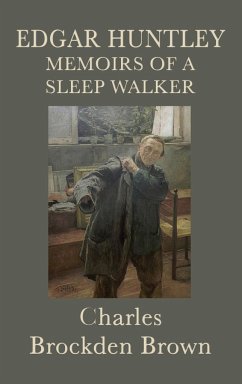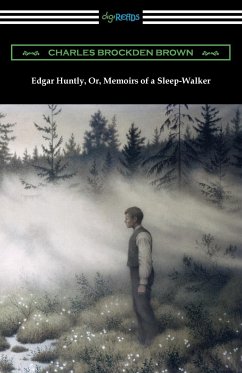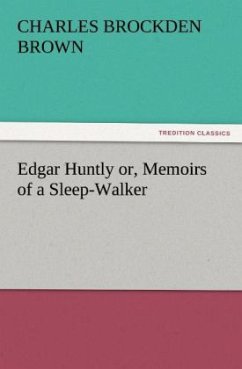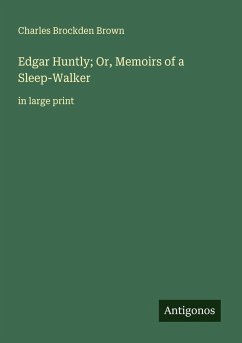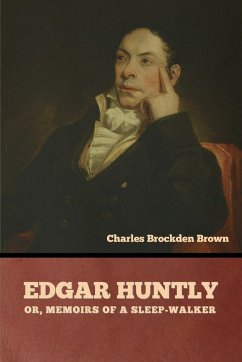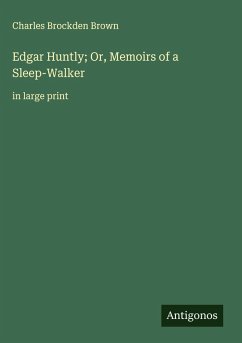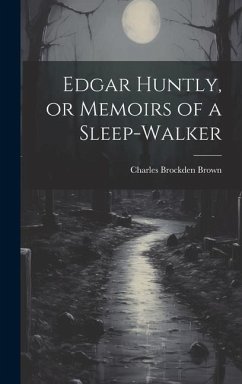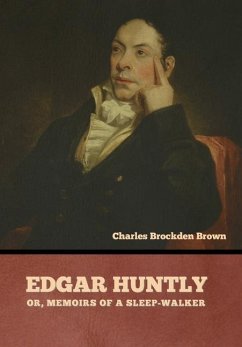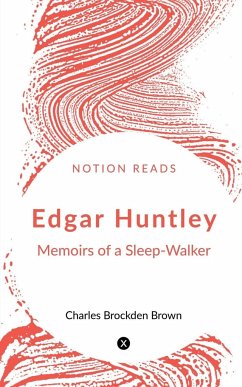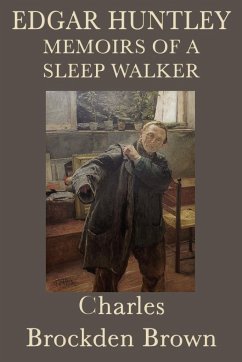
Edgar Huntley Memoirs of a Sleep Walker
Versandkostenfrei!
Versandfertig in 1-2 Wochen
13,99 €
inkl. MwSt.
Weitere Ausgaben:

PAYBACK Punkte
7 °P sammeln!
Edgar Huntly, a young man who lives with his uncle and sisters on a farm outside Philadelphia, begins the novel determined to learn who murdered his friend Waldegrave. Walking near the elm tree under which Waldegrave was killed late one night, Huntly sees Clithero, a servant from a neighboring farm, half-dressed, digging in the ground and weeping loudly. Could Clithero have done what Edgar thinks he has?





